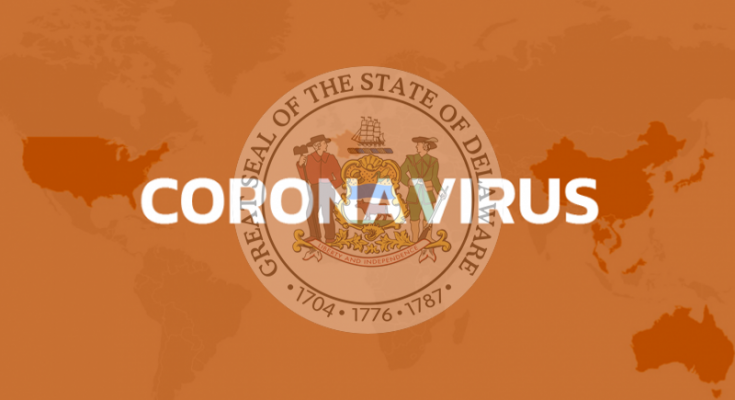The Delaware Division of Public Health (DPH) is announcing two more presumptive positive cases of coronavirus disease 2019 (COVID-19), bringing the total number of cases to six. The two individuals are associated with the University of Delaware community, and are linked to the initial presumptive positive cases.
The individuals are a woman older than 50 and a man older than 60, both from New Castle County. Both are self-isolating at home. Epidemiologists from the Division of Public Health are working to identify close contacts of the two individuals who may have been exposed. If other people are found to have possibly been exposed, state health officials will provide guidance to these individuals and monitor them closely for the development of symptoms. Delaware testing numbers will be updated later today. DPH will not be disclosing additional information about the individuals.
“The additional cases involving individuals from the University of Delaware community are concerning, but we will monitor the individuals with COVID-19 and identify their close contacts,” said DPH Director Dr. Karyl Rattay. “DPH is working closely with the CDC, hospitals, clinicians, and other medical providers to proactively identify and respond to any possible cases of COVID-19. We will continue to keep the public fully informed as additional information becomes available.”
Students, faculty, and staff who have general questions about the University of Delaware’s response to COVID-19 should contact the University of Delaware’s Call Center at 302-831-1188 between 9 a.m. and 5 p.m., Monday through Friday, and 10 a.m. to 3 p.m. Saturday and Sunday.
In response to the growing number of cases, President Donald Trump declared a national emergency on Friday, freeing up $50 billion in federal funds to combat COVID-19. On Thursday, Delaware Governor John Carney declared a state of emergency that went into effect on Friday. The Governor on Friday also directed all Delaware public schools to close March 16-27 to allow schools to prepare for the potential spread of coronavirus.
Symptoms of COVID-19 are most similar to lower respiratory infections with patients having fever, cough, and shortness of breath. There is no specific antiviral treatment recommended for COVID-19 infection at this time. While in some cases illnesses can be severe and require hospitalization, many individuals infected with COVID-19 recover by resting, drinking plenty of liquids and taking pain, and fever-reducing medications.
Testing for coronavirus disease is not recommended for individuals who do not have any symptoms of illness. For individuals who have symptoms of illness (fever, cough, or shortness of breath), they should contact their primary care provider, who can collect specimens and send them to either the Delaware Public Health Lab or LabCorp for testing. Medical providers should evaluate patients and rule out other causes of illness first before recommending testing for COVID-19.
While testing for the disease at the Public Health Lab requires DPH approval, providers do not need DPH approval to submit test samples to LabCorp. With the addition of commercial lab testing now available, Delaware has enough capacity to accommodate its current testing needs. Providers can use flu kits to collect a nasal swab for testing. Commercial labs are required to report testing and results to DPH.
DPH advises older Delawareans and people with severe chronic health conditions to follow guidance issued by the Centers for Disease Control and Prevention (CDC) encouraging them to “avoid crowds as much as possible” to reduce their risk of contracting coronavirus disease.
If you are in the higher-risk groups for getting very sick from COVID-19, the CDC recommends you should:
Avoid non-essential travel such as long plane trips and defer all cruise trips worldwide.
Avoid crowds, especially in poorly ventilated space, as much as possible.
When you go out in public, including to doctor appointments or dialysis, keep away from others who are sick, limit close contact and wash your hands often.
Take everyday precaution to keep space between yourself and others.
If an outbreak does occur, stay home as much as possible.
Stock up on supplies, including prescription and over-the-counter medicines, food and water, and other household items.
Have a plan in the event you get sick, including discussing with household members, other relatives, and friends what you might need.
The public can call the Division of Public Health’s Coronavirus Call Center at 1-866-408-1899, or 711 for those with hearing impairments, from 8:30 a.m. to 8 p.m. Monday through Friday, and 10 a.m. to 4 p.m. Saturday and Sunday. Or they can email [email protected]. For the latest on Delaware’s response, go to de.gov/coronavirus.
Delaware is experiencing a particularly serious flu season with 6,441 lab-confirmed cases and 11 deaths statewide, and in addition to getting your flu shot, DPH recommends everyday measures that people can take to prevent the spread of all infections, which would also slow the spread of coronavirus disease:
Cough or sneeze into your elbow, not your hand. If you use a tissue, dispose of it right away.
Wash your hands frequently and thoroughly, including the backs of your hands and under your nails, for 20 seconds. Or use alcohol-based hand sanitizer.
Do not touch your face, eyes, nose or mouth with unwashed hands.
Clean commonly used surfaces such as computers, desktops, countertops cabinets, handles and more with disinfectant.
Stay home when you are sick.
If you are healthy, the CDC does not recommend buying or using face masks. You should only wear a mask if a health care provider tells you do so.
Symptoms of COVID-19 can include fever, cough and shortness of breath. The symptoms may appear in as few as two days or as long as 14 days after exposure. Reported illnesses have ranged from people with little to no symptoms (similar to the common cold) to people being severely ill and dying.
DPH will continue to update the public as more information becomes available. For more information, visit de.gov/coronavirus.

